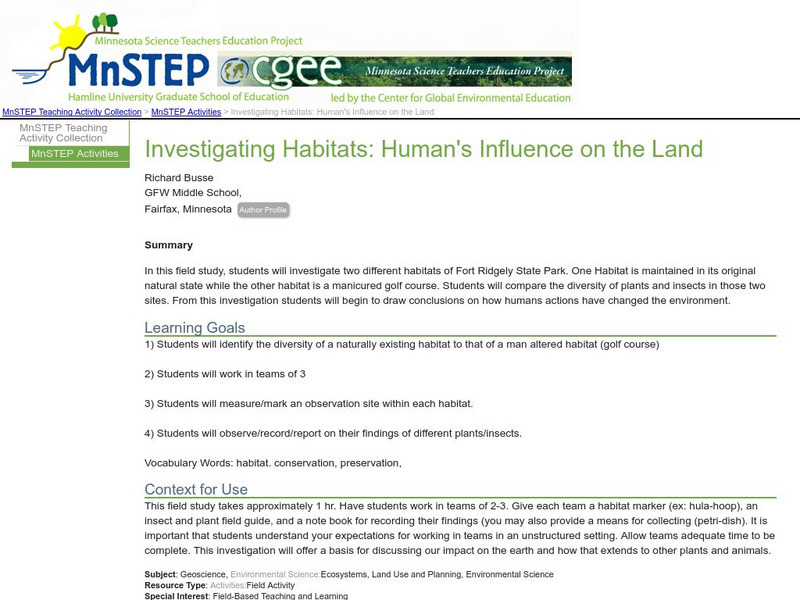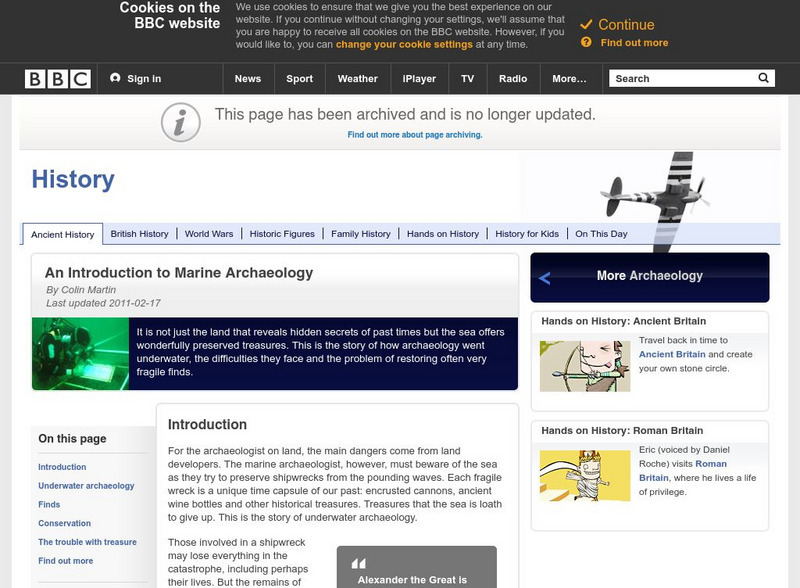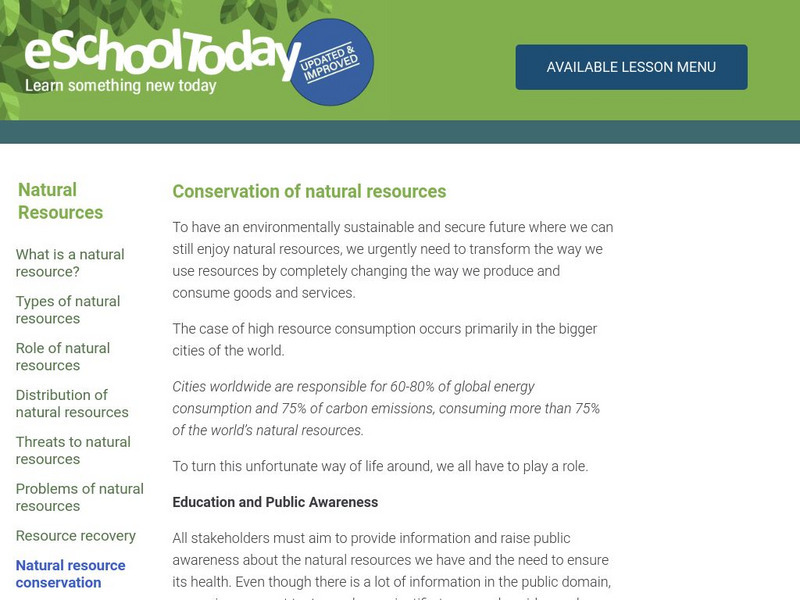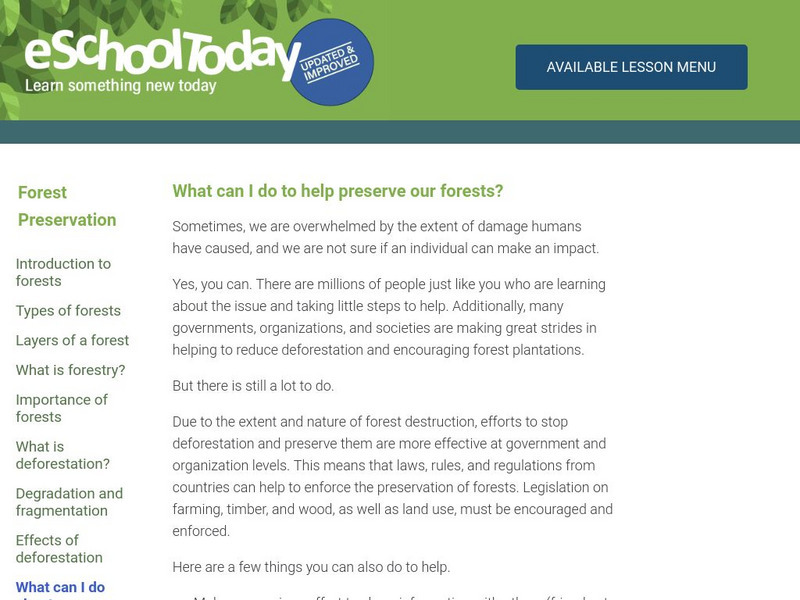Curated OER
National Park Service: Fossils in Time Unit
For this lesson, students learn about the earth's past by studying clues that have been left behind, such as fossils and rocks. Students will find the answers to many questions: What is paleontology?, What is geological time?, What can...
Science Education Resource Center at Carleton College
Serc: Investigating Habitats: Human's Influence on the Land
Students will investigate two different habitats; one habitat is maintained in its original natural state while the other habitat is a manicured golf course. Students will identify and compare the diversity of plants and insects in those...
TED Talks
Ted: Ted Ed: How Poachers Became Caretakers
In his home of Namibia, John Kasaona is working on an innovative way to protect endangered animal species: giving nearby villagers (including former poachers) responsibility for caring for the animals. [15:47]
Careers New Zealand
Kiwi Careers: Fast Food Manager
This site contains detailed information about the fast food career field. While this site is based out of New Zealand and contain information for that country, there is valuable data that is useful about this career.
NASA
Nasa: Climate Kids: Waterwise Landscaper
A conversation with Michelle Pekko-Seymoure, and landscaper who grows plants that need very little water. Learn about this growing practice which helps conserve one of our most important resources.
TeachEngineering
Teach Engineering: Cool Views
In this activity, students will learn the meaning of preservation and conservation and identify themselves and others as preservationists or conservationists in relation to specific environmental issues. They will understand how an...
TeachEngineering
Teach Engineering: I've Got Issues!
This lesson will introduce students to environmental issues. Students will recognize environmental opinions and perspective, which will help them define themselves and others as either preservationists or conservationists. Students also...
Cornell Lab of Ornithology
Habitat Network: Be Healthier: A Goal for Your Site?
Learn about the many small steps people can take to improve one's health and the health of one's community.
BBC
Bbc: History: An Introduction to Marine Archaeology
A very good introduction to the discipline. Provides details on how it is different from land-based archaeology, how wreck sites are investigated, issues regarding "treasure" wrecks, conservation, and much more.
National Endowment for the Humanities
Neh: Edsit Ement: Traces: Historic Archaeology
Excellent lesson plans that challenge learners to consider every day uses for artifacts. Site provides an analysis worksheet that will help students consider the importance of artifacts in understanding historical people. Links to sites...
eSchool Today
E School Today: Conservation of Natural Resources
Learn about steps to take in the aid of conserving our natural resources.
eSchool Today
E School Today: Tips on How to Help Conserve Forest Resources
Students can find out what can to do to help preserve our forests.
Globio
Glossopedia: Conservation
Conservation concepts are explained and illustrated within the context of the global community.
CommonLit
Common Lit: Book Pairings: "World Without Fish" by Mark Kurlansky
Selected (8) reading passages (grades 6-10) to pair with "World Without Fish" by Mark Kurlansky. Mark Kurlansky discusses how humans treat the oceans and the fish that live in them, and what the world will likely look like if fish...
CK-12 Foundation
Ck 12: Life Science: 12.28 Preserving Water Sources
Learn about preserving water resources.
Louisiana Department of Education
Louisiana Doe: Louisiana Believes: Social Studies: Grade 3: A Log's Life
Third graders learn about the interdependence of animals and trees in nature and the cycles of growth and decay. Students also learn about the importance of preserving balance in nature and what happens when we upset that balance. While...












